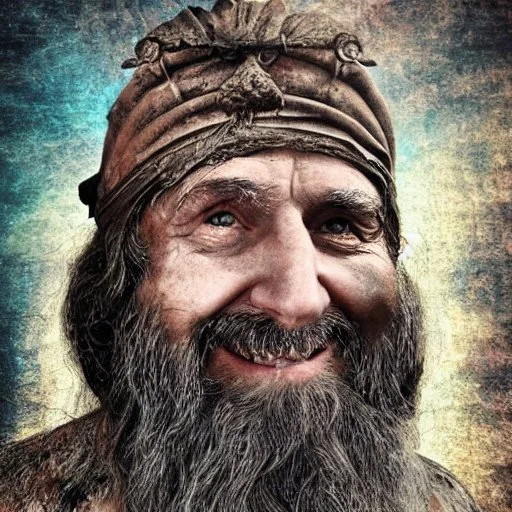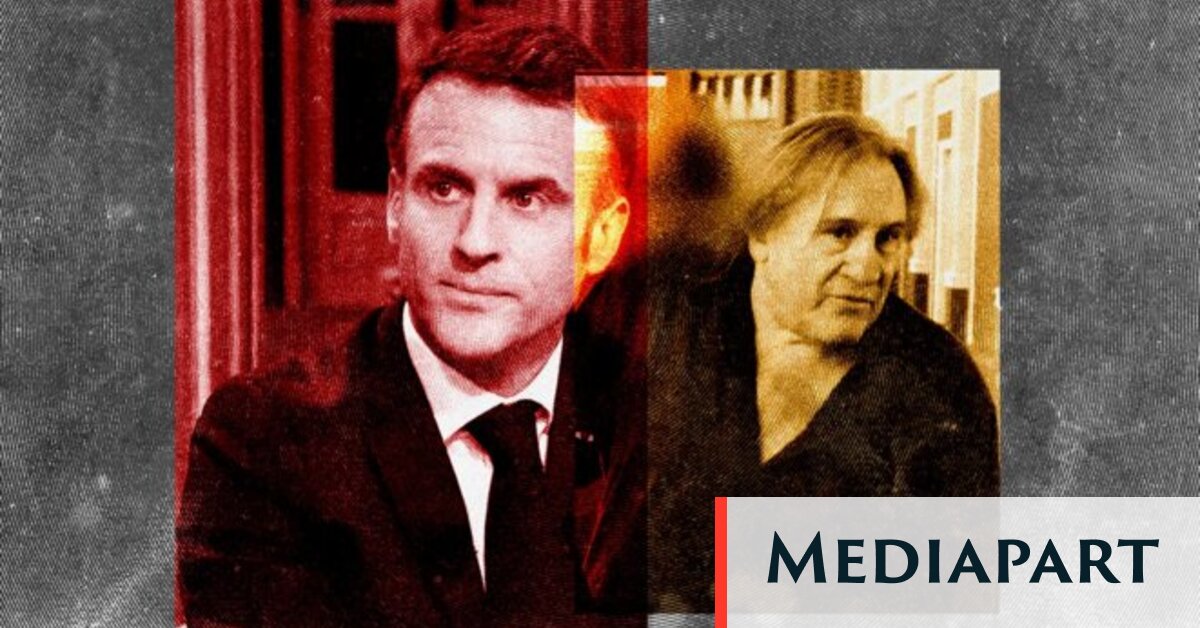Excerpts from the article :
A total of 16 women have accused the actor Gérard Depardieu of sexual assault, including rape. While Depardieu has firmly denied the allegations, a French television documentary investigating the claims this month revealed hitherto unseen footage of his lewd behaviour. Amid the outrage sparked by the documentary, 56 showbiz stars this week signed an open letter denouncing the “lynching” of Depardieu. But the most notable of those who have leapt to the actor’s defence is Emmanuel Macron, who slammed what he called a “manhunt” against the actor, even wrongly suggesting the incriminating recording in the documentary had been doctored. In this op-ed article first published in French last week, Lénaïg Bredoux and Marine Turchi analyse the French president’s ill-judged intervention.
Speaking on December 20th on public TV channel France 5, in the round-table discussion programme “C à vous”, French President Emmanuel Macron jumped to the defence of Gérard Depardieu over a string of rape and sexual violence allegations made against the actor, whose lewd behaviour towards women, and obscene comments about a young girl, were exposed in a recent documentary. (…)
Macron’s defence of the actor on C à vous on December 20th came just 24 hours after his government’s highly controversial new hardline legislation on immigration, which enshrines the practice of “national preference” was approved in Parliament, thanks to support from conservative and far-right members of the chamber. The transformation of what had been initially rejected draft legislation into a law that reflected the programme of the far-right split Macron’s ruling Renaissance party and led to the resignation of the health minister.
(…)
Conspiracy theory and attacks upon the media
In a disturbing move, Emmanuel Macron relayed the idea, already put about by Depardieu’s family and the rightwing Bolloré media group (notably CNews, the Journal du dimanche, and the “Touche pas à mon poste” TV chatshow), that the France 2 documentary had doctored the 2018 recording of the actor’s comments made during his visit to North Korea. On four occasions, Macron referred to “controversies” and created doubt as to whether the documentary footage had been manipulated by journalists in order to deliberately deceive viewers. “I am wary about the context, I’ve understood that there have been controversies about reports […], about words that were out of sync with the images,” said Macron, adding that “people will have to debate this”.
(…)
Meanwhile, France Télévisions announced that it had appointed a huissier de justice (a bailiff with legal power to serve as witness) to watch the rushes in question. In his report, the huissier attests to the fact that the images showing a girl aged about ten riding a pony and the lewd comments made by Depardieu are part of the exact same sequence, thus invalidating both the accusation by Depardieu’s family that it was the result of “fraudulent editing” and the doubts cast over the sequence by the French president.
(…)
It is not the first time that the French president has targeted journalists, and is in fact the latest in a long list of attacks since he first came to office in 2017. But this latest example is situated within the context of a rapprochement between Macron and French media and publishing tycoon Vincent Bolloré. The two men have put aside their previously frosty relationship and in September held a secret meeting at the Elysée Palace, according to French daily Le Monde, which suggested that Bolloré sought Macron’s help over a European Commission probe into one of his recent acquisitions. (…)
Separating ‘transgression’ and sexual assault
By stepping onto the moral ground, Macron – who said the Légion d’honneur “is not a moral order”, and that “there can continue to be transgressive people in it” – contributed to making the behaviour of Depardieu supposedly ordinary. This excuse of “schoolboy humour” and comments like “Oh it’s OK, it’s Gérard”, which Mediapart heard so often during its investigation into the accusations against Depardieu by 13 women who accuse him of sexual violence, is today adopted by the French president. Yet the controversy is not about an issue of “transgression”, but one of allegations of rape, sexual assault and harassment, and therefore about potential crimes.
Depardieu is currently formally placed under investigation in a judicial probe into his suspected “rape” and “sexual assault” of actress Charlotte Arnould, which was opened after she filed a formal complaint against him. Depardieu denies the accusations. A total of 15 other women have recounted in the media how they fell victim to sexual assaults by Depardieu (13 of them detailed their accounts to Mediapart in an investigation published in April, and two others similarly accused the actor on France Inter radio in July).
(…)
“When he says ‘I won’t take part in a manhunt’, he is judging the women who have filed complaints, the women who have given their accounts,” added Mailfert. “He is saying that it is them whose approach is reprehensible.”
How Macron publicly supported ministers accused of rape
It was not the first time that the French president brought up the issue of the presumption of innocence – a fundamental principle under French law of a person’s innocence unless found guilty in a court of law, and which no-one in the debate about Depardieu places in question. In the past and separate cases of three serving ministers facing rape allegations – current interior minister Gérald Darmanin, ecological transition minister from 2017-2018 Nicolas Hulot, and Damien Abad, minister in 2022 for autonomy and the handicapped – Macron chose to keep them in office in the name of the presumption of innocence (the cases against Darmanin and Hulot would finally be dropped).
(…)



Those who defend rapists are telling on themselves, it’s about time society in general started to listen.